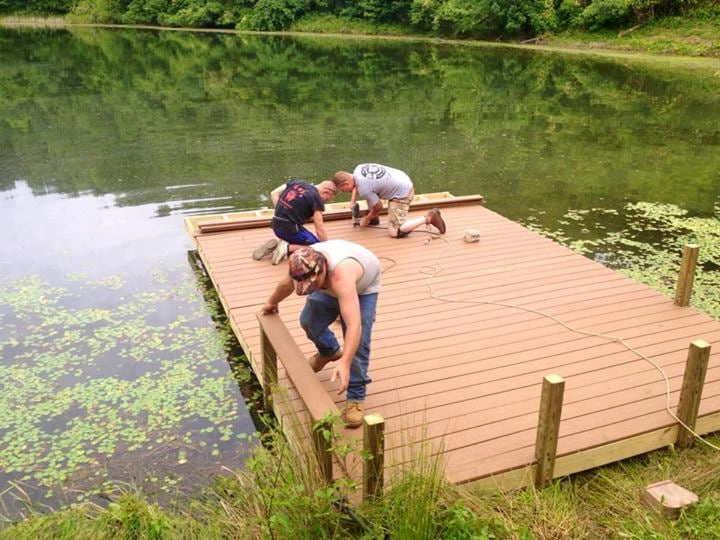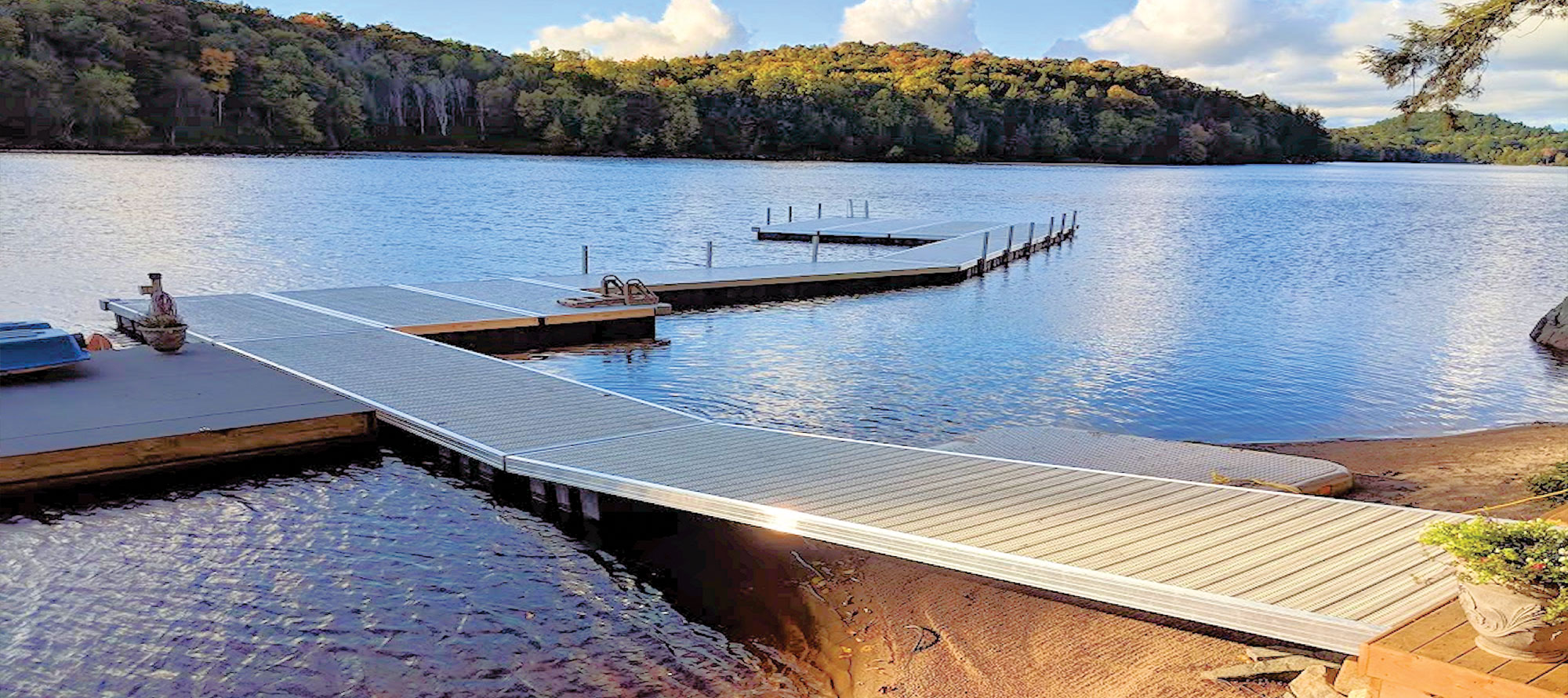Floating Docks: The Suitable Selection for Versatile Water Gain Access To
Floating docks present a compelling remedy for a range of water accessibility requires, offering versatility that goes beyond conventional mooring options. Their capacity to adapt to fluctuating water degrees while guaranteeing stability and safety and security makes them especially useful for both entertainment and business applications. The modular nature of floating docks promotes customization, providing to certain demands. The subtleties of installment and upkeep, together with the range of applications, require a closer exam to completely value their prospective advantages and ramifications for river access approaches.
Benefits of Floating Docks
Floating docks offer various advantages that enhance water gain access to for different applications. Their capability to fall and increase with altering water levels makes them especially beneficial in settings with changing trends or seasonal variations. This adaptability makes sure that vessels can quickly anchor without concern for the water's depth, supplying a reliable platform for leisure, industrial, and commercial uses.
Additionally, floating docks are usually built from sturdy materials that stand up to deterioration, making them appropriate for lasting usage in aquatic atmospheres. Their installment is typically less intrusive than conventional fixed docks, decreasing the environmental influence and facilitating quicker release (dock company). This flexibility permits easier relocation or reconfiguration according to customer requirements or environmental modifications
Safety and security is one more crucial advantage; floating docks can supply secure access for individuals boarding or getting off from boats and reduce the threat of accidents connected with unstable surfaces. They can be developed to accommodate a selection of devices, such as cleats and fenders, enhancing performance. Generally, floating docks stand for an effective service for enhancing water gain access to throughout diverse industries while advertising safety and security and environmental sustainability.

Kinds of Floating Docks
Numerous sorts of floating docks accommodate different requirements and settings, each made with certain attributes to maximize functionality. One of the most usual types consist of modular docks, which include interlocking sections that enable very easy customization and expansion. These docks are perfect for recreational usage, as they can be customized to fit different boat dimensions and water conditions.
One more popular alternative is the fixed floating dock, which remains secured in position but floats with changing water levels. floating dock builder. This type is particularly matched for areas with very little tidal variations, offering stable accessibility for fishing or swimming. Additionally, there are drive-on docks, which feature a sloped style that allows watercrafts to quickly drive on and off, making them ideal for individual watercraft and smaller sized vessels
For industrial applications, sturdy floating docks are readily available, created from reinforced products to hold up against substantial tons and severe marine settings. Lastly, green floating docks make use of lasting products and styles to minimize ecological influence, often including attributes like greenery to support regional wildlife. Understanding the numerous kinds of floating docks makes sure that customers can pick one of the most ideal option for their particular needs.
Installment Process Overview
A successful installment of floating docks requires mindful planning and attention to detail to ensure ideal efficiency and safety. The first action entails examining the website conditions, including water deepness, existing, and possible challenges. This evaluation educates the choice of the ideal dock materials and layout tailored to the specific atmosphere.
Next, getting necessary licenses is vital, as numerous jurisdictions have policies concerning building on water bodies. The installation can continue when approvals are safeguarded. Begin by preparing the foundation, which may include anchoring systems or pilings customized to the dock kind and regional conditions.
Adhering to the structure arrangement, set up the dock sections according to supplier specs. Ensure that all elements are securely attached and straightened to withstand ecological tensions. Setting the dock in the assigned location, ensuring it is degree and secure.

Upkeep Tips and Ideal Practices
After the setup procedure is full, recurring maintenance plays an essential role in making sure the long life and functionality of floating docks. Normal examinations need to be carried out to recognize any type of indicators of degeneration, wear, or damage - floating dock services. Inspect for my response any kind of loosened installations, cracks, or splitting up in the dock areas, as these can compromise structural integrity
Cleansing the dock is important to eliminate particles, algae, and other build-up that can impact its look and safety and security. Use a gentle stress wash regularly to maintain cleanliness without creating damages to the surface area. Additionally, using a protective sealer every few years can aid improve long life and resist ecological wear.
Take note of the mooring lines and supports, ensuring they are free and safe from corrosion. Replace any abject components quickly to avoid risks. Seasonal adjustments may additionally be required; during severe climate condition, rearranging or reinforcing the dock can avoid damage.
Applications for Floating Docks
Floating docks serve a wide variety of applications, satisfying both entertainment and business demands. In entertainment settings, they supply seamless access to rivers for tasks such as boating, fishing, and swimming. Their adjustable nature enables installment in differing water degrees, making sure stable and risk-free access regardless of tidal variations.
Readily, floating docks are vital for marinas and beachfront companies. They help with the docking of vessels, making it possible for efficient loading and dumping of items. Their modular layout enables very easy growth or reconfiguration to accommodate transforming business demands, making them perfect for watercraft leasings, tour procedures, or fishing navigate to these guys charters.
In addition, floating docks are made use of in environmental applications such as aquatic study and environment reconstruction. They can work as systems for scientific research studies, checking water top quality, or conducting wild animals studies without disturbing delicate ecological communities.
In commercial contexts, floating docks are utilized in construction jobs, providing access to hard-to-reach areas for devices and personnel. Their flexibility, resilience, and marginal influence on the setting make them an ideal option for a wide variety of applications, enhancing both performance and ease of access in different water-based atmospheres.
Verdict
In final thought, floating docks stand for an optimum remedy for diverse water accessibility requires, owing to their adaptability, longevity, and modular design. Floating docks offer as a beneficial asset for leisure, industrial, and ecological jobs, guaranteeing reputable access to waterways and promoting lasting practices in marine atmospheres.
Floating docks present a compelling go to website option for a range of water access requires, using convenience that goes beyond standard mooring alternatives.Floating docks deal countless advantages that boost water access for various applications. In general, floating docks represent an efficient remedy for improving water access across diverse fields while advertising security and environmental sustainability.
One more popular option is the stationary floating dock, which continues to be anchored in location yet floats with changing water degrees.In final thought, floating docks represent an optimal remedy for varied water access needs, owing to their adaptability, longevity, and modular layout.